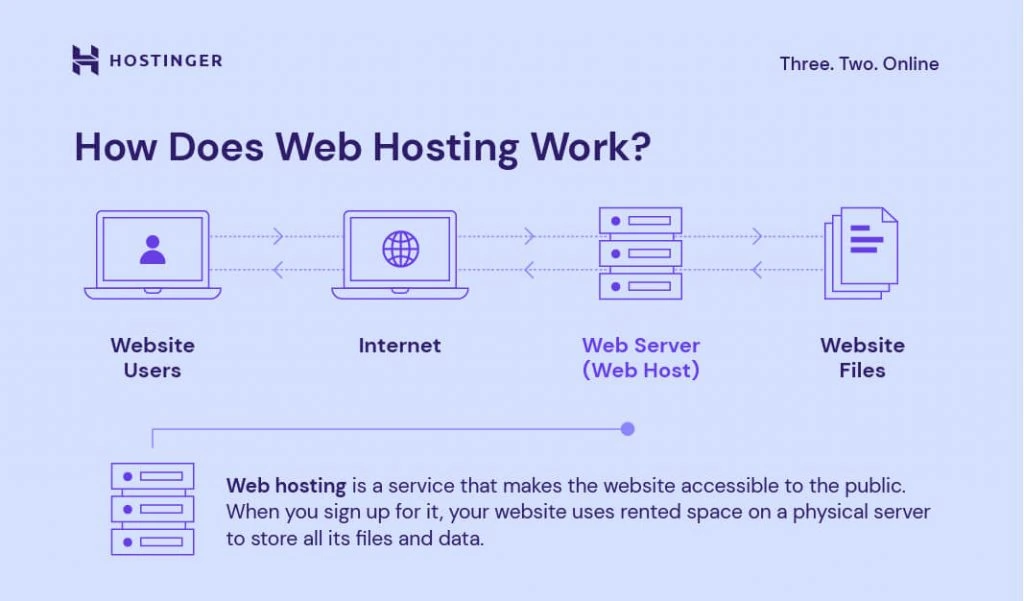The Best Web Hosting Companies and Services for the UK.
Keep your website running smoothly with a hosting company that guarantees you good uptime, fast load times and easy setup. Find the Top Hosting Providers in the UK — Free SSL Certificate, 24/7 support and top-notch services start at £1.39 per month.


Hawkhost – Business Since 2004. Award Winning Web Hosting Provider. Only $3.29/month. Get Started Now!
- 24/7/365 Live Support Available
- Money Back Guarantee
- Robust Control Panel

Hostpapa – smart web solutions for your small business
- Support you can trust
- Free Let’s Encrypt SSL Certificate
- User-friendly control panel

Contabo-High-powered web hosting with plans to suite your unique needs
- German Quality Since 2003
- Global Availability – 7 Regions, 12 Locations
- Your Security Is Our Priority

IONOS – Real solutions for real web pros. Starting at $1/month
- 3x faster with SSD & caching
- Customizable auto updates
- Daily backups and easy recovery
- Sustainable data center
- ISO-certified security
- Expert 24/7 technical support
An Overview of Professional Web Hosting in the UK
Professional web hosting is an important aspect of running a successful website. It provides businesses with the best possible solutions for domain name registration and renewal, enhanced performance and reliability, expert maintenance and security services, advanced technologies to benefit your website, 24/7 availability to assist customers, and more. If you’re looking for professional web hosting in the UK, it’s important to understand what it is and how to choose the best service provider
What Is Web Hosting?
Web hosting is a service where website files are stored on servers. The servers are owned by the host, and they exchange data with clients. The client is typically a web browser, and the user is the potential website visitor. Website owners purchase a hosting plan to lease space on a physical server from the hosting services
The hosting services offer different plans, capacities, and features. Web hosts store servers in a data centre, so hosting plan subscribers don’t need to own physical server hardware or software.
How Does Web Hosting Work?

Web hosting works by connecting your website files to a server using various protocols such as HTTP (Hypertext Transfer Protocol), FTP (File Transfer Protocol), SSH (Secure Shell), or SFTP (Secure File Transfer Protocol). These protocols allow you to transfer files between your computer and the server in order to store them or make them accessible online. The most popular protocol used today is HTTP which allows users to connect through their web browser in order to access data stored on the server. Additionally, there are various types of servers used for web hosting including Apache and IIS (Internet Information Services) which are both open-source software platforms designed specifically for serving content online.
Types of Web Hosting Services
As mentioned above, there are several different types of web hosting services available depending on your needs and budget: shared hosting which involves sharing resources with other websites. Dedicated servers provide more control over the environment, cloud-based servers which offer scalability and flexibility, and managed servers provide convenience but come at a higher cost compared to other options. Each type has its own unique benefits as well as drawbacks depending on what kind of website you are running and what features you need from your host provider.
Dedicated Hosting
Dedicated hosting is an attractive option for many companies who need to host their website or other online services. It offers dedicated resources such as a dedicated CPU, dedicated server space, dedicated storage, and dedicated network capacity that can help keep your applications running quickly and reliably. Unfortunately, dedicated hosting also comes with some drawbacks such as a much higher cost than shared hosting options, difficulty in scaling up resources when needed, and more complex setup procedures. To determine if dedicated hosting is right for you, it’s important to consider the pros and cons of this type of service so that you know what is best for your organization’s needs.
Shared Hosting
Shared hosting is an excellent option for everyone from small businesses and bloggers to hobbyists since it’s typically the least expensive type of hosting service. Shared hosting allows multiple websites to occupy one single server, thus each website gets its own portion of resources such as RAM and a central processing unit (CPU). Shared hosting services are also advantageous because they often provide tools to help beginners get started, including drag-and-drop website builders and WordPress hosting support. Although shared hosting offers a budget-friendly option, it’s important to note that website owners cannot control resources. Consequently, performance can vary if any website experiences sudden usage surges.
VPS Hosting
VPS hosting is an attractive solution for website owners as it offers more control than shared hosting, yet with more affordability than dedicated hosting. VPS uses a “partition” scheme to provide a separate space within the server for websites, allowing each site to have its own dedicated RAM and processing power. This prevents performance issues found in overpacked shared servers, while still being a resource to cost-effective than dedicated plans. VPS hosting allows users basic root access, granting them the capability of customizing their site without restrictions by making modifications to its coding and software selections if they possess enough technical know-how. VPS may not always be the ideal choice for those with complex content or high visibility sites, but it is still a great option for business websites making up the majority of online activity today.
Cloud Hosting
Cloud hosting is a great option for businesses looking to optimize resources without hefty investments. It leverages virtualization technology to pool resources from multiple remote servers in the cloud, in contrast to on-site hosting which requires investing in an entire server. Cloud hosting is more responsive than VPS or shared hosting during traffic surges, and does not require extensive technical expertise as dedicated hosting options do. Cloud providers offer website owners the ability to easily upgrade RAM or CPU when needed, or set up an auto-scale option that increases resources automatically when traffic spikes occur. This flexibility makes cloud hosting particularly attractive for growing businesses that need reliable performance and plenty of control, but don’t want the expense or hassle of a dedicated subscription plan.
Ecommerce Hosting
Ecommerce hosting is a comprehensive suite of features specifically designed to support businesses that are selling their products or services online. It includes features such as free SSL encryption, assistance with setting up payment gateways, superior security measures and the ability to automatically scale upwards during times of peak traffic. For those who use the WooCommerce plugin, there is also the option of WooCommerce hosting – an advanced version of ecommerce hosting that promises enhanced performance and reliability when dealing with large numbers of customers.
WordPress Hosting
Web hosting is an invaluable tool for any website owner, but WordPress hosting takes the user experience a step further. By providing servers and resources specifically tailored to optimize WordPress, many of the technical challenges associated with running a CMS are taken away. For example, WordPress packages may provide automatic updates, site builder tools, and technical support. This makes it much easier for the many people who don’t have the technical skills to run their own websites. All in all, WordPress hosting provides an easier way for users to get their websites up and running quickly and effectively.
Reseller Hosting
Reseller hosting is the perfect solution for entrepreneurs who want to launch their own web hosting service without the high costs of purchasing and managing infrastructure. It also provides a great opportunity for web designers and developers who are looking to add more services to their existing portfolio. Reseller hosting offers access to bandwidth, and hard drive space, as well as control over clients’ experiences with white labelling options so that the reseller’s branding is what is represented. Furthermore, resellers can custom-design their hosting plans and prices to meet their needs without having to be burdened with setting up or managing servers. With just one control panel Resellers are able to manage all of their domain names, resources, and multiple websites too. Reseller hosting helps create a powerful presence in the market while avoiding costly overhead expenses.
FAQs About Website Hosts UK
What are domain and hosting?
A domain name is a key component of web building and provides users with the string of characters they type into a web browser to access your website. Web hosting, on the other hand, is a service that allows your web pages to be accessible online. It provides web servers to store website files so visitors can access them when they visit your domain. Together, these two elements are incredibly important for setting up a web presence – without at least one, you wouldn’t be able to display your content publicly.
What is web hosting bandwidth?
Web hosting bandwidth is a term used to describe the amount of data that web hosting services can handle – whether it be web, email or other web-based applications. It can range from small amounts such as 5GB/month all the way up to unlimited amounts of bandwidth. Depending on the web hosting package size, an individual or business may need more in order to have their web presence function reliably and without any performance hiccups. The amount of web hosting bandwidth you opt for should reflect your current needs, but should also factor in any anticipated growth and increased demand along with system redundancies to reduce possible shutdowns due to a lack of resources. Allocating sufficient web hosting bandwidth effectively ensures any web-based processes are running smoothly and efficiently with minimal downtime.
Why web hosting is important?
Web hosting is an important aspect of web presence. It provides the platform to store web files and allows webpages to become available on the internet. Without web hosting, websites would not be viewable online. Additionally, web hosting also allows attaining access to web-based technologies such as databases or web applications. Web hosting also facilitates smooth and efficient business transactions through a secure connection for customers to purchase goods and services on eCommerce websites. Moreover, a professional web hosting service ensures reliable uptime performance which helps in building trust with customers. Overall, web hosting enables businesses to reach a larger customer base and have control over various aspects of their website operations – by choosing between dedicated or shared web plans depending on their needs.
Reasons to avoid free web hosting in the UK
Despite its initial appeal, free web hosting can be quite limiting when it comes to creating a professional website with adequate security measures in place; since there are no guarantees that your data will be kept safe or that you won’t experience frequent downtime due to resource strain from other sites using shared servers! Furthermore, free hosts typically don’t provide all the features available through paid services so it’s important to weigh your options carefully before taking the plunge into free services!
Cost of web hosting in the UK
The cost of web hosting plans varies greatly depending on what type of plan you need –shared hosting plans typically range from £3-6 per month while dedicated or cloud servers can cost up to £ 40-50 monthly! However, most top providers offer introductory discounts as well as additional tips on how you can reduce costs by optimising your website for speed or using alternative software platforms such as WordPress which many hosts provide at no extra cost! We recommend running an online comparison between different providers before making any hasty decisions about which host is right for you – it pays off in the long run!
What to look for when choosing a UK web host
When looking for a quality host provider based in the United Kingdom it’s important to consider not just price but also reliability, security measures taken by the company, and customer service availability among other things – after all if something goes wrong then being able to contact someone quickly who can help solve any issues is key when running a successful online business! Additionally, make sure that any packages offered come complete with all necessary tools such as an SSL certificate (which should already be included) so that customers feel secure interacting with your website from wherever they may be located around the world – these are just a few of many factors that should be taken into account when choosing a suitable host provider but do keep an eye out for special offers too because they often contain great deals that can save you money over time!
